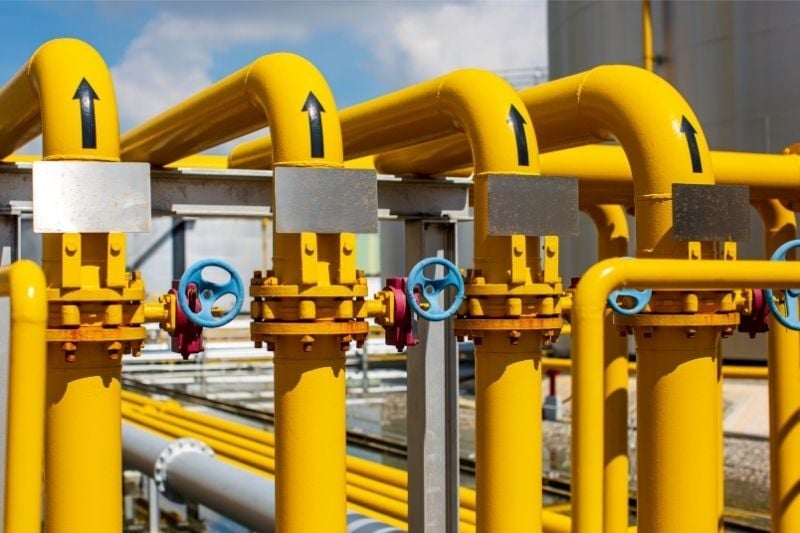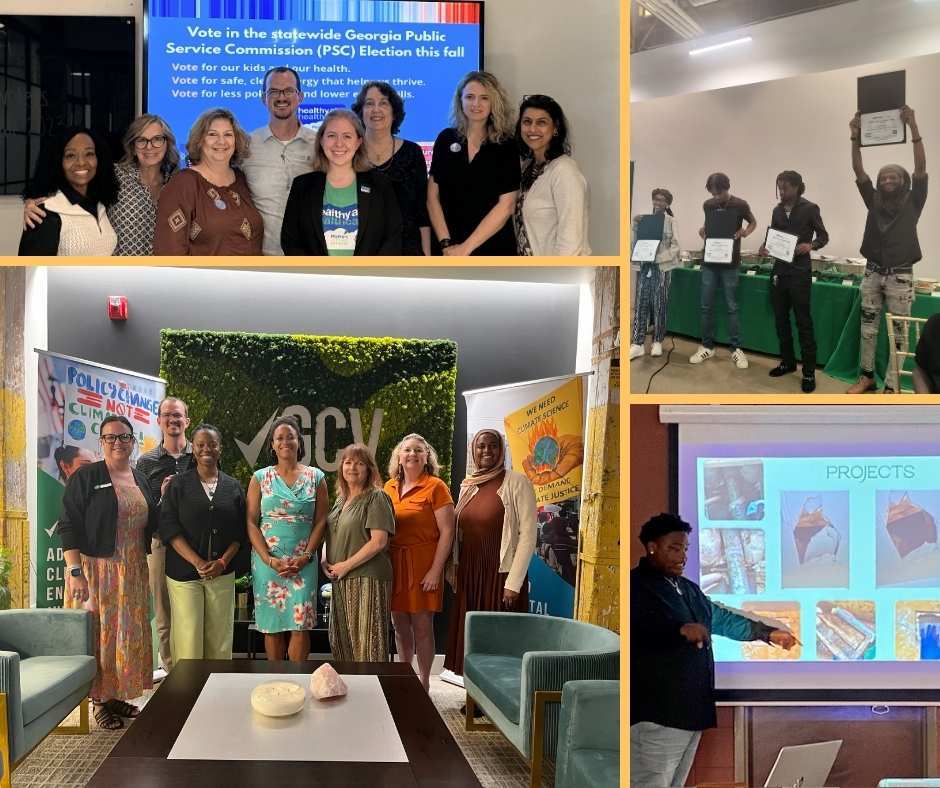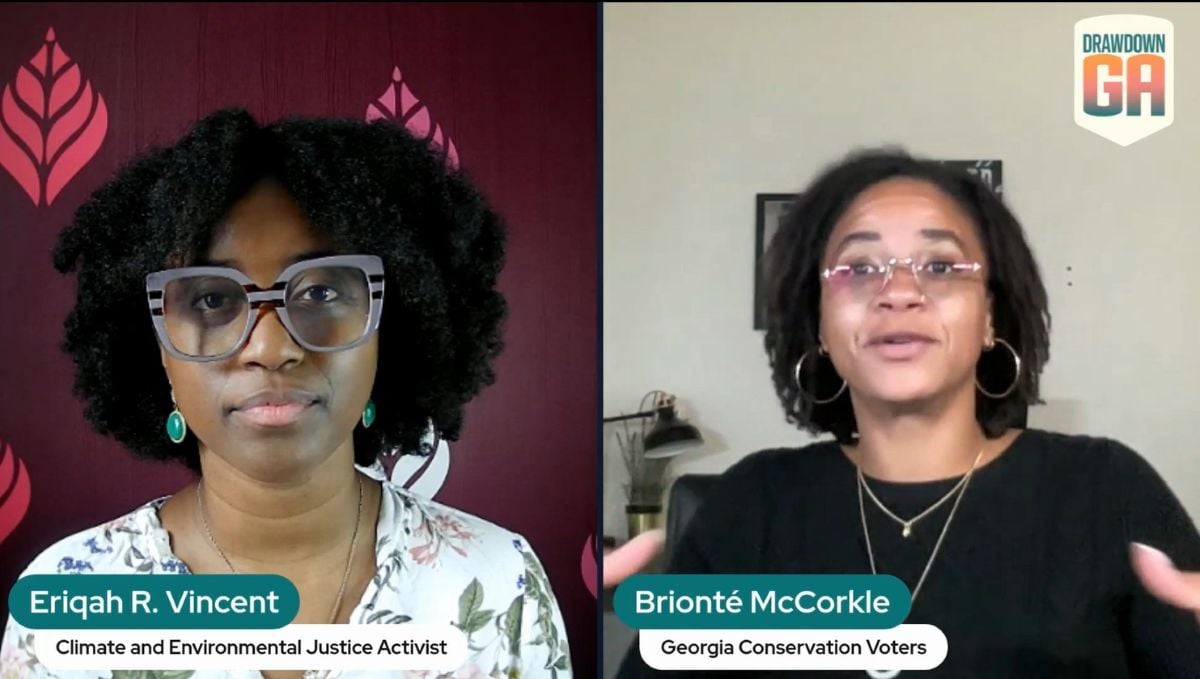Landfills are one of Georgia’s largest sources of methane, a potent greenhouse gas that can warm the planet at a rate dozens of times greater than carbon dioxide. As organic waste breaks down beneath the surface, methane is released into the atmosphere—unless it’s captured and put to use.
Fortunately, there’s a proven, Georgia-ready solution already making an impact: landfill methane capture. It’s not just good for reducing emissions—it also improves local air quality, supports public health, and turns waste into a valuable source of renewable energy. That’s why landfill methane capture is one of the 20 Drawdown Georgia climate solutions identified by researchers as having the greatest potential to reduce emissions across the state.
Let’s take a closer look at why this solution matters, where Georgia stands today, and how policymakers and business leaders can accelerate its impact.
Why Capturing Methane from Landfills Is a Powerful Climate Solution
As organic waste decomposes in landfills, it produces methane—a greenhouse gas that’s at least 28 times more potent than carbon dioxide over a 100-year timeframe, and up to 80 times more potent over a 20-year span. If this methane isn’t captured, it escapes into the atmosphere and contributes significantly to global warming.

But when methane is collected through a landfill gas capture system, it can be:
-
Converted to electricity to power homes and businesses
-
Upgraded to renewable natural gas (RNG) for use as a cleaner fuel
-
Used to displace fossil fuels, reducing further emissions from natural gas, diesel, or gasoline use
In addition to lowering emissions, landfill methane projects offer Beyond Carbon benefits:
-
They cut down on volatile organic compounds (VOCs) and air pollutants like nitrogen oxides, improving local air quality
-
They reduce odors from landfills
-
They help landfill operators comply with environmental regulations
-
And they create new economic opportunities, including local jobs and revenue from energy production
Well-designed systems can capture and destroy 60–90% of methane emissions from landfills, transforming a potent climate pollutant into a productive asset.
The Current State of Landfill Methane Capture in Georgia
Georgia is already making significant progress in this space. As of 2024, 19 landfill methane projects are active across the state, out of 77 total landfills in the state.
These projects generate approximately 66 megawatts (MW) of electricity, enough to power tens of thousands of homes. Some highlights:
-
Republic Services and Mas Energy operate the largest portfolio in the state, with projects in Buford, Griffin, Winder, and Hickory Ridge generating 24.1 MW.
-
Green Power EMC sources landfill gas from five counties—Clarke, Houston, Lowndes, Taylor, and Twiggs—with outputs ranging from 1.49 MW to 7 MW each.
-
In Columbus, the Muscogee County Landfill is now supplying pipeline-ready RNG to Liberty Utilities—the first of its kind in the region.
Looking ahead, Georgia’s potential is even greater:
-
The EPA estimates the state could produce over 180 million cubic feet of RNG per day from landfill methane.
-
Retrofitting just four additional landfills could cut emissions by 1 megaton of CO₂e per year.
But deployment remains uneven. Most projects are concentrated around Metro Atlanta and in select parts of central and southwestern Georgia, leaving many rural areas without methane recovery infrastructure.
The Policy Landscape: What’s Driving Progress—and What’s Still Missing
Georgia’s progress in landfill methane capture is supported by a mix of federal incentives, state-level strategies, and voluntary programs, but significant opportunity remains to scale this solution further.
Current Incentives and Support:
-
Inflation Reduction Act: Provides grants and tax credits for methane capture and RNG production.
-
Georgia Environmental Finance Authority: Offers funding for methane gas collection and fuel projects.
-
EPA’s Landfill Methane Outreach Program: Supports technical partnerships to promote methane recovery.
The Peach State Voluntary Emission Reduction Plan—part of Georgia’s Climate Pollution Reduction strategy—identifies landfill methane as a priority target and emphasizes equitable implementation in disadvantaged communities.
Opportunities for Policymakers:
Policymakers across Georgia have a unique opportunity to support landfill methane capture as a way to reduce emissions, improve local air quality, and deliver cost-effective climate action. With new funding sources and growing interest in RNG, local leaders can take practical steps to accelerate deployment—especially in communities that have not yet tapped into this potential.
To accelerate impact, Georgia policymakers could:
-
Establish statewide targets or mandates for landfill methane capture
-
Create feed-in tariffs or other incentives to encourage RNG development
-
Offer streamlined permitting and siting processes for RNG facilities
-
Expand outreach and funding for rural counties with untapped landfill gas potential
These steps would not only cut emissions, they could also bring new jobs, cleaner air, and long-term cost savings to communities statewide.
Why RNG Makes Sense for Georgia Businesses
Landfill gas-to-RNG projects offer major benefits to Georgia businesses, especially those with large fleets or facilities that rely on natural gas.
Key Business Advantages:
-
Emissions Reduction: Using RNG helps companies meet emissions reduction and ESG goals while improving air quality.
-
Incentives and Revenue: RNG projects are eligible for renewable energy credits and tax benefits. Companies can also generate revenue by selling excess RNG or associated credits.
-
Cost Stability: RNG provides a hedge against volatile fossil fuel prices, offering long-term savings.
-
Infrastructure Compatibility: RNG works with existing pipelines and equipment—no need for major upgrades.
-
Reputation and Resilience: Leading on sustainability can boost brand trust and demonstrate leadership to employees, customers, and investors.
Whether operating landfills, using natural gas in manufacturing, or transitioning transportation fleets, Georgia businesses can benefit from tapping into RNG as a clean, local, and strategic energy source.
A Ready-to-Scale Solution with Local Impact
Landfill Methane Capture is already working in Georgia—and it’s ready to go further.
It’s a rare solution that cuts powerful greenhouse gas emissions, improves public health, and boosts local economies. With 19 projects already online, clear technical potential, and strong public benefits, landfill methane capture is one of Georgia’s most promising—and practical—climate solutions.
Want Regular Updates on Climate Solutions in Georgia?
Subscribe now to be notified when new blog posts are published to get the latest insights on climate solutions that work for Georgia delivered straight to your inbox.









